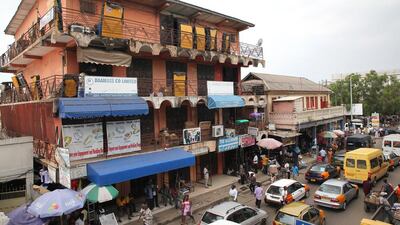When discussions turn to the developing world, there is an unfortunate tendency to lump all, or most, of the African countries together. It is, of course, true that many economies on the world’s second most-populous continent are facing serious problems, but there are some exceptions that are politically stable and where the economic outlook is improving.
Ghana, for example, might have had a place among the achievers if it had taken advantage of a successful international campaign that led to its crippling foreign debt being wiped clean in 2005. Instead, less than a decade later, Ghana is in a deep financial crisis, with its currency almost in free fall, high government spending and every likelihood that it will have to go, cap in hand politically to the International Monetary Fund (IMF) for a bailout to fund its budget. As Nicholas Spiro, managing director of Spiro Sovereign Strategy in London, told Bloomberg, Ghana has “misbehaved badly” in the past nine years and is now paying the price.
Ghana is facing a round of belt-tightening that will inevitably impact more on the common people than on the political class that has spent the country back into debt – tipped to reach 61 per cent of GDP by the end of the year. On the IMF’s insistence, the government has already cut fuel subsidies, but there is much more to be done.
The longer-term challenge for Africa in general and Ghana in particular is to reduce its reliance on a commodities and broaden its economic base. The government of president John Dramani, who has been in office for two years, must curb spending, create jobs and build much-needed infrastructure, while reining in rampant corruption – the ruling parties have been accused of printing money to support political campaigns, and individuals face allegations of siphoning government money into their own pockets.
Change across Africa will require further borrowing, but accruing “good” debt – that which will be used for nation building – will be a far wiser choice than squandering the clean slate that Ghana was gifted back in 2005.

